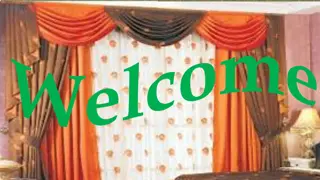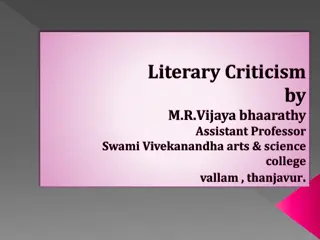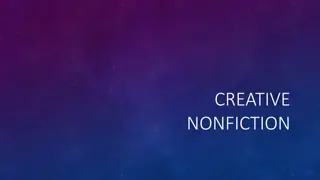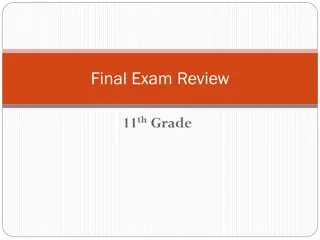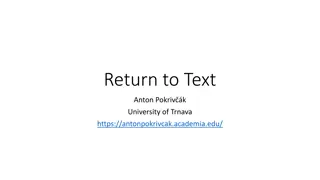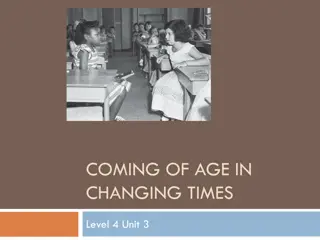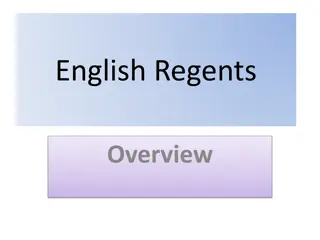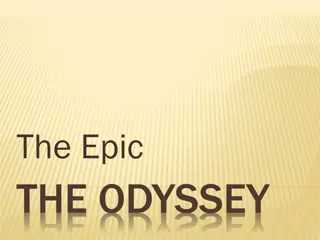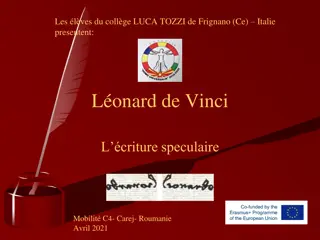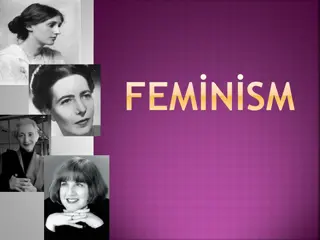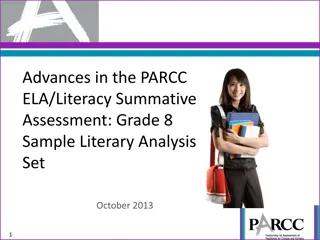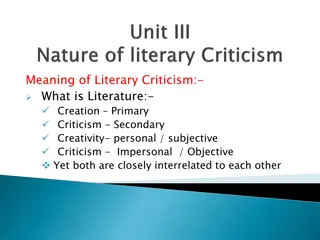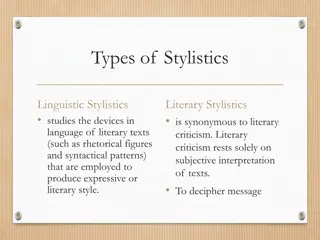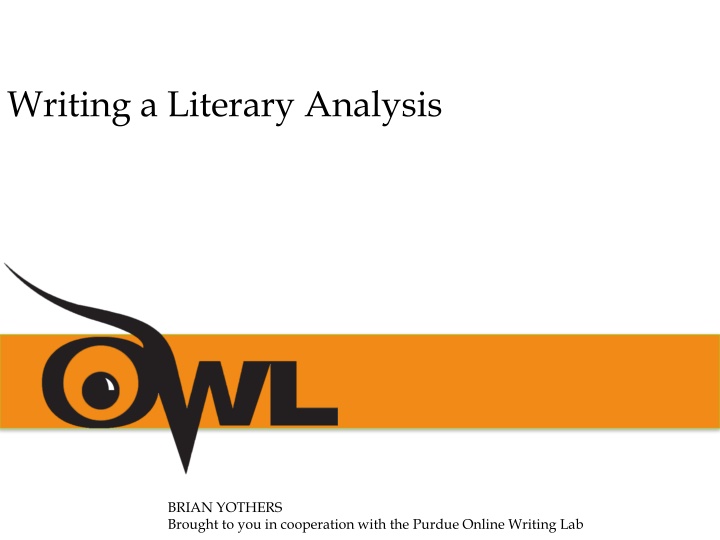
Mastering Literary Analysis with Brian Yothers: A Comprehensive Guide
Dive into the world of literary analysis with Brian Yothers in collaboration with the Purdue Online Writing Lab. Explore the essence of literary analysis, important concepts, and how to form compelling arguments. Mrs. Michaels provides an overview to crafting engaging introductions for literary analyses, setting the stage for meaningful exploration of texts and their deeper meanings.
Uploaded on | 1 Views
Download Presentation

Please find below an Image/Link to download the presentation.
The content on the website is provided AS IS for your information and personal use only. It may not be sold, licensed, or shared on other websites without obtaining consent from the author. If you encounter any issues during the download, it is possible that the publisher has removed the file from their server.
You are allowed to download the files provided on this website for personal or commercial use, subject to the condition that they are used lawfully. All files are the property of their respective owners.
The content on the website is provided AS IS for your information and personal use only. It may not be sold, licensed, or shared on other websites without obtaining consent from the author.
E N D
Presentation Transcript
Writing a Literary Analysis BRIAN YOTHERS Brought to you in cooperation with the Purdue Online Writing Lab
What is Literary Analysis? It s literary literary. It s an analysis analysis. It s An Argument! An Argument! It may also involve research research on and analysis of secondary sources.
Important Literary Concepts The Basics: The Basics: Other Key Concepts: Other Key Concepts: Plot Setting Narration/point of view Characterization Symbol Metaphor Genre Irony/ambiguity Historical context Social, political, economic contexts Ideology Multiple voices Various critical orientations Literary theory
How is it Literary? Usually, a literary analysis will involve a discussion of a text as writing writing, thus the term literary, which means having to do with letters. discussion of a text as This will involve the use of certain concepts that are very specifically associated with literature. Metaphor? Metaphor? Setting? Setting?
What is an Analysis? An analysis analysis of a literary work may discuss: How the various components various components of an individual work relate to each other. How two separate literary works deal with similar concepts or forms forms. similar concepts or How concepts and forms in literary works relate to larger aesthetic, political, social, economic, or religious contexts larger contexts.
How is Literary Analysis An Argument? Writing an Argument: Writing an Argument: When writing a literary analysis, you will focus on specific attribute(s) specific attribute(s) of the text(s). focus on When discussing these attributes, you will want to make sure that you are making a specific, arguable making a specific, arguable point (thesis) point (thesis) about these attributes. You will defend this point with defend this point with reasons and evidence drawn from the text. evidence
Mrs. Michaels Overview Introductions 1. Opening: attention getter | 2. Background & Topic Discussion | V 3. specific (thesis)
Introduction to a Literary Analysis Mrs. Michael s Overview 1. 1. Opening: Attention Getter Opening: Attention Getter a. Interesting fact (needs parenthetical citations) b. Powerful image c. Related anecdote d. Universal message questions; avoid: avoid: rhetorical definitions; powerful quotations 1. 1. Background or Discussion Background or Discussion Literary Topic: the novel, author, basic plot, or central/key ideas 1. 1. Thesis Statement Thesis Statement
Thesis Statements Which is the best best Thesis Statement? Moby-Dick is about the problem of evil. Moby-Dick is boring and pointless. Moby-Dick is about a big, white whale. The use of whiteness in Moby-Dick illustrates the uncertainty of the meaning of life that Ishmael expresses throughout the novel.
Mrs. Michaels Overview Thesis Statements
Mrs. Michaels Overview Thesis Statements Topic Topic + + Verb Verb + + Argument/Point to be shown Argument/Point to be shown Topic = novel & literary focus Verb = variation of shows Argument = message or effect that results from literary technique
Mrs. Michaels Overview Body Paragraph Structure Claim Claim Topic Sentence Transition & 1st Point, 2nd Point, 3rd Point, etc. Evidence Evidence Quoted or Paraphrased Facts, Opinions, or Information Purpose of this is to support the point that is being explained, defended, or refuted Parenthetical Citations are included Warrant Warrant This explains what the evidence says or is showing Then it connects the point to the topic being explained, defended, or refuted in the paragraph
Mrs. Michaels Overview Body Paragraph Structure Detailed Body Paragraph Structure Detailed Body Paragraph Structure Topic Sentence (Claim) Topic Sentence (Claim) 1st Point (Sub-Claim) Evidence & Citation Specific Explanation (Warrant) Overall Connection (Warrant) 2nd Point (Sub-Claim) Evidence & Citation Specific Explanation (Warrant) Overall Connection (Warrant) Clincher (Claim & Thesis) Clincher (Claim & Thesis)
How to Support A Thesis Statement Evidence and Support: Evidence and Support: Include examples from the text Direct quotations Summaries of scenes Paraphrases from the text: Cite other critics opinions critics opinions Discuss the text s historical and social context historical and social context Always remember to read carefully and highlight useful passages and quotes.
What is a Secondary Source? Secondary Sources: Secondary Sources: A book or article that discusses the text you are discussing. A book or article that discusses a theory related to the argument you are making. A book or article that discusses the social and historical context of the text you are discussing. For example: In discussing Chaucer s Pardoner s Tale, Lee Patterson argues that:
How do I Find Secondary Sources? You might consult: You might consult: Academic Databases EX: The MLA International Bibliography The Dictionary of Literary Biography Discipline-specific sources: EX: America: History and Life for American Literature Other search engines A bibliography that is part of your text Your instructor
Integrating Secondary Source When you use secondary sources, be sure to show how they relate to your thesis relate to your thesis. show how they Don t overuse Don t overuse any one secondary source, or for that matter, secondary sources in general Remember that this is your paper Remember that this is your paper, your argument the secondary sources are just helping you out. Never, never, never plagiarize Never, never, never plagiarize. See the OWL handout on plagiarism for more information.
Recap: Literary Analysis When writing a literary analysis: When writing a literary analysis: Be familiar with literary terms. Analyze specific items. Make an a argument. Make appropriate use of secondary sources. Consult instructors and tutors for help when needed.
How Can I Learn More? Check your library for: Check your library for: Various handbooks of literary terms Numerous introductions to literary criticism and theory, widely available. Example: A Handbook to Literature, Harmon/Holman
Where to Go for More Help Purdue University Writing Lab, Heavilon 226 Check our web site: http://owl.english.purdue.edu Email brief questions to OWL Mail: https://owl.english.purdue.edu/contact/owlmailtutors
The End WRITING A LITERARY ANALYSIS BRIAN YOTHERS Brought to you in cooperation with the Purdue Online Writing Lab

